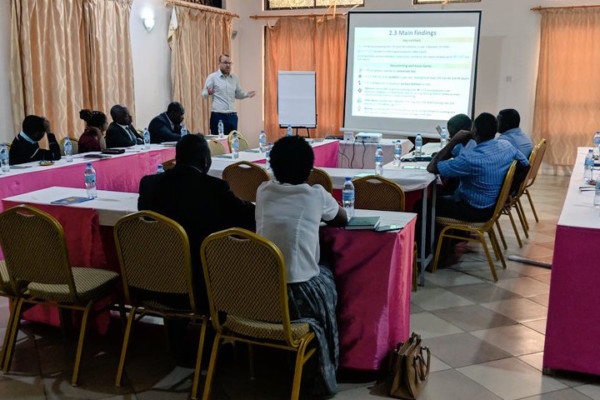
Data sharing on the socio-economic and human rights impact of mining in Tanzania
May 15, 2019Tanzania, May 2019 Since January 2017, IPIS has been working on a project to map the socio-economic and human rights impact of mining in northwest Tanzania. This project is supported by the Belgian development cooperation under a programme on human rights and digitisation. By using mobile technologies such as mobile data collection, GIS mapping, mobile incident reporting and phone surveys throug
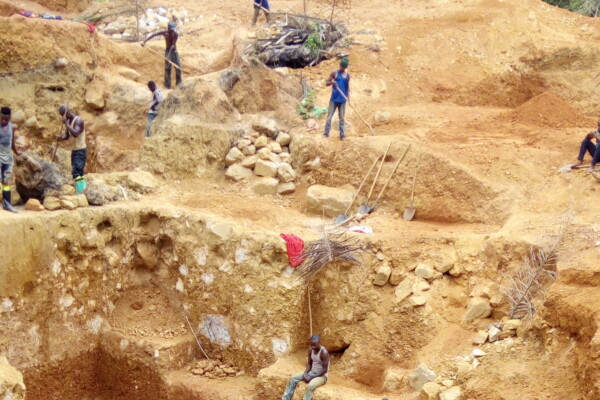
Assessing the impact of due diligence programmes in Eastern DRC: A baseline study
April 24, 2019Over the past decade, various legislative and due diligence programmes (DDP) have been developed to improve mining communities’ livelihoods and reduce human rights abuses in conflict affected and high- risk areas, with a special focus on the African Great Lakes region. Despite significant growth and investments in minerals certification and traceability schemes, data on the impact of due diligence
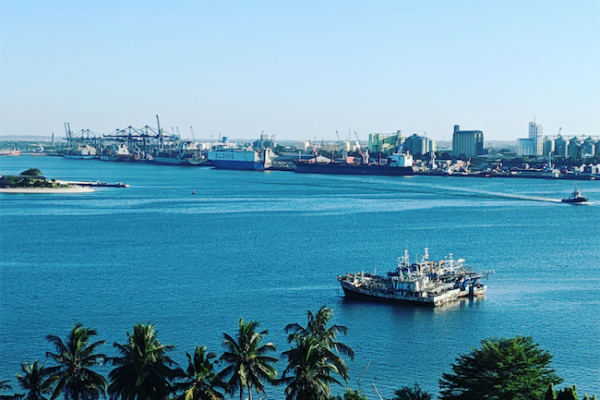
Voices from Tanzania – Case studies on pertinent corporate human rights issues in Tanzania
April 24, 2019“Voices from Tanzania – case studies on Business and Human Rights (Volume 1)” presents five studies on pertinent corporate human rights issues in Tanzania as conducted by Business and Human Rights Tanzania (BHRT), the Commission for Human Rights and Good Governance (CHRAGG), Governance Links Tanzania, the Legal and Human Rights Centre (LHRC) and IPIS’ project manager in Tanzania. The case studies

Multi-stakeholder dialogue on Business and Human Rights in Tanzania identifies ‘land rights and environment’ as priority topic
April 17, 2019Dodoma, 21 March 2019. Over 60 key stakeholders from civil society, business and government agencies from Tanzania mainland and Zanzibar gathered at the Royal Village Hotel, Dodoma for the first annual multi-stakeholder dialogue on Business and Human Rights. This event was organized by the Tanzanian Commission for Human Rights and Good Governance (CHRAGG), Business and Human Rights Tanzania
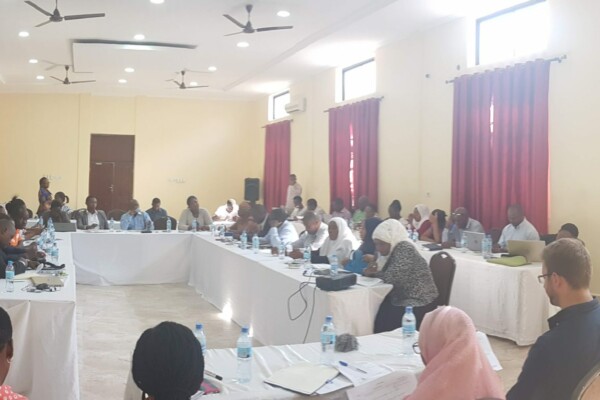
Report on the first Multi-Stakeholder Meeting on Business and Human Rights in Tanzania
March 21, 2019This report presents a summary of the outcomes of the conference titled “Multi Stakeholder Conference on Business and Human Rights in Tanzania” which was held in Dodoma, Tanzania on the 21st of March 2019, at Royal Village Hotel. The conference was part of the project “Improving, monitoring, research and dialogue on business and human rights in Tanzania”, which aims at building local and national
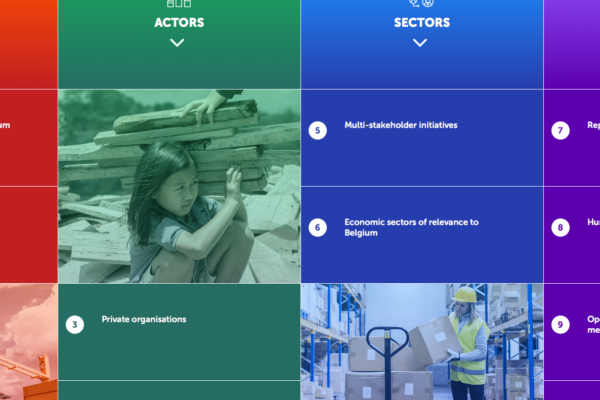
Toolbox for Business and Human Rights
January 25, 2019On the 70th anniversary of the Universal Declaration of Human Rights, the Federal Institute for Sustainable Development (FIDO/IFDD) has launched the Toolbox Human Rights. This toolbox bundles the most important human rights conventions and regulations into one comprehensive website. This website aims to help companies, organisations and their stakeholders to easily align their policies/practices i
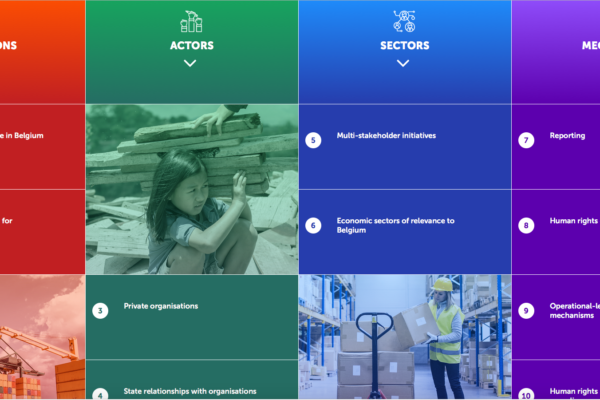
Toolbox for Business & Human Rights
January 3, 2019On the 70th anniversary of the Universal Declaration of Human Rights, the Federal Institute for Sustainable Development (FIDO/IFDD) has launched the Toolbox Human Rights. This toolbox is a collaboration between experts from the University of Antwerp and IPIS with valuable contributions from Belgian stakeholders.This toolbox bundles the most important human rights conventions and regulations into o
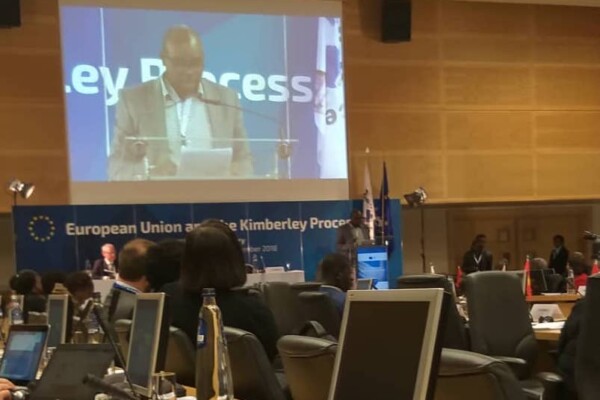
KP Civil Society disappointed by resistance to reform in the Kimberley Process
November 16, 2018The Kimberley Process (KP) Civil Society Coalition (CSC) pushed hard for reform in the 2018 KP Brussels Plenary, with very concrete proposals, amongst others on changing the definition of conflict diamonds beyond the limited and outdated scope of rough diamonds financing rebel movements. The CSC, together with industry (World Diamond Council) and Canada made a realistic proposal for a wider defini
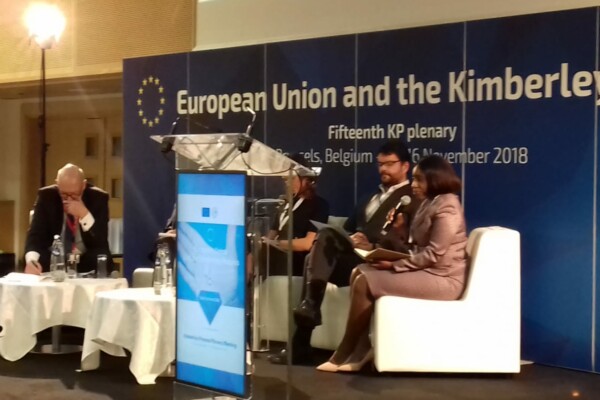
Kimberley Process Civil Society Coalition calls on all Members to deliver on improving global diamond governance
November 14, 2018Reform is high on the agenda of this year’s Kimberley Process Plenary under EU Chairmanship. The Kimberley Process – once a pioneering tripartite effort to stop diamonds from financing rebel groups – is struggling to provide an adequate answer to numerous human rights challenges associated with the diamond sector today. Aware of these enormous challenges, it was decided at the 2017 Plenary meeting
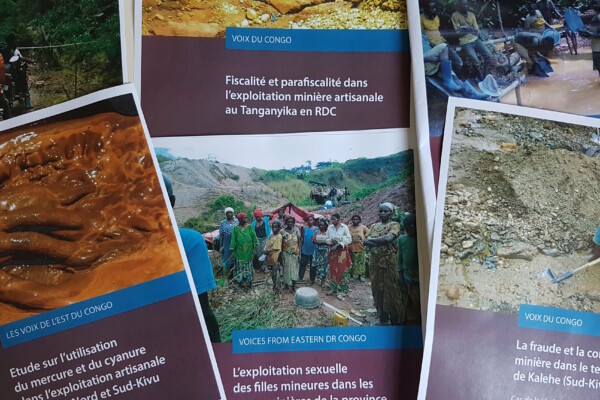
Strengthening local voices: discover IPIS’ partner publication series “Voices from the South”
September 3, 2018Since 2017, IPIS has been closely collaborating with civil society actors from central and east Africa who want to share their perspective on subjects related to IPIS’ work. Their hands-on experience, unique knowledge and access to information offer local insights relevant to a large audience. With the editorial support from IPIS, local partners are encouraged to write down their research. This ha
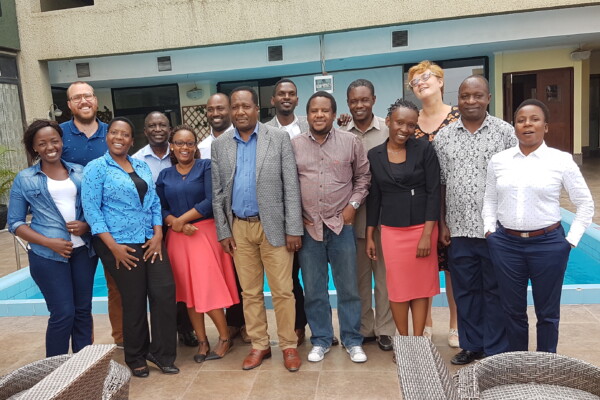
Training workshop: “Field Research and Report Writing on Business and Human Rights”
August 22, 2018At the start of August 2018, five Tanzanian civil society organisations gathered in Dar es Salaam for a three-day training on field research and report writing. The training forms part of the EU-funded project ‘Improving monitoring, research and dialogue on Business & Human Rights in Tanzania’ which is implemented by IPIS, the Tanzanian Commission for Human Rights and Good Governance (CHRAGG),
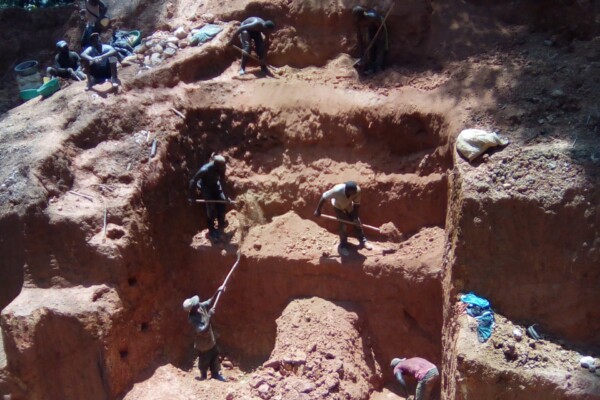
Annual Report 2017
August 21, 2018In its 2017 annual report, IPIS gives an overview of its research projects and activities. It covers the four research programmes that IPIS focusses on: natural resources, arms trade, conflict mapping and business and human rights. IPIS explains among others its mapping work of artisanal mining sites in the Democratic Republic of Congo, its work on Human Rights in mining in Northwest Tanzania an
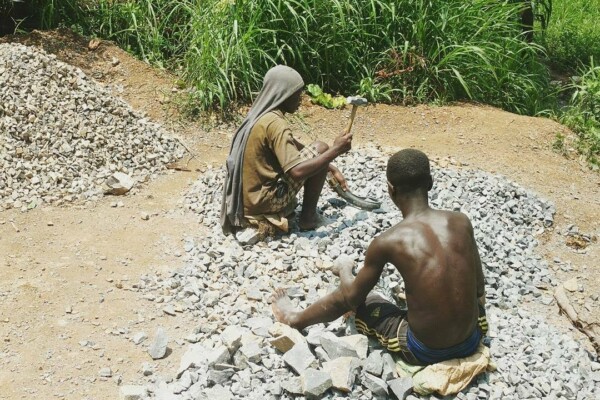
Mobile data collection on mining sites in Kigoma, Tanzania
February 26, 2018IPIS is undertaking a large-scale mobile data collection exercise on operational, socio-economic and human rights aspects of artisanal and industrial mining in northwest Tanzania. Building on this baseline data, IPIS will develop and implement a phone-based incidents reporting mechanism for local and mining communities. With better and more accessible data, IPIS aims to contribute to improving the
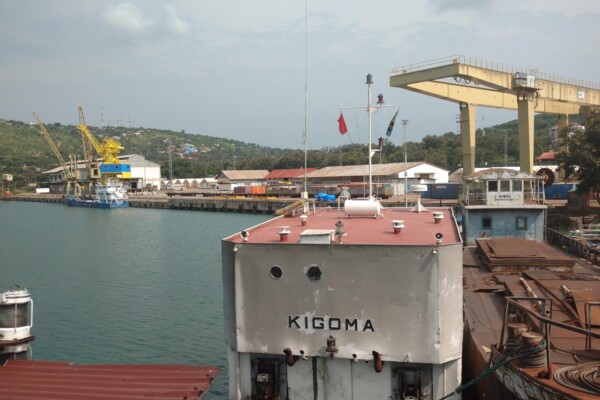
Improving monitoring, research and dialogue on Business and Human Rights in Tanzania
February 2, 2018IPIS was in Dar es Salaam to launch its new project on Business & Human Rights with the Tanzanian Commission for Human Rights and Good Governance (CHRAGG) and Business and Human Rights Tanzania (BHRT). Tanzania is bearing the fruits of the accelerating economic growth and rising influx of foreign direct investment (FDI), but is also struggling with the enormous challenges in the ar
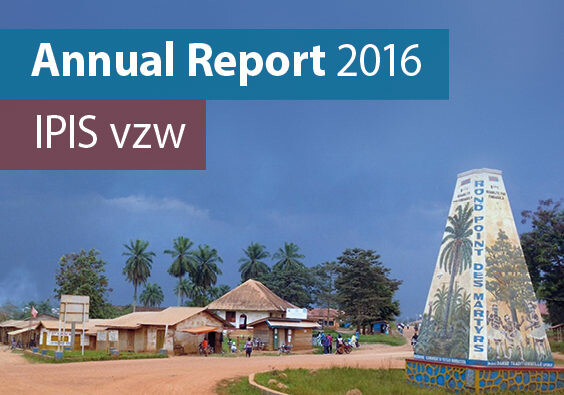
Annual report 2016
June 23, 2017In its 2016 annual report, IPIS gives an overview of its research projects and activities. It covers the four research programmes that IPIS focusses on: natural resources, arms trade, conflict mapping and business and human rights. In 2016, IPIS continued to be a rally point for hard to get data on natural resources, often visualised in maps. Our flagship map for 2016 is the interactive map of art
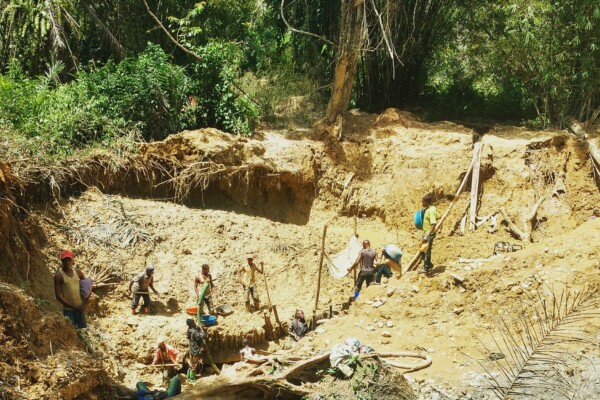
Artisanal Gold Monitoring Pilot – Progress reports
June 20, 2017With the support of the Public Private Alliance for Responsible Minerals Trade (PPA), IPIS set up its Artisanal Gold Monitoring Pilot in Mambasa (Ituri Province, DRC) between April 2016 and July 2017. The findings of the research are summarized in three progress reports, which can be found below, and a final monitoring report, which can be found here. Progress report August – September 2016
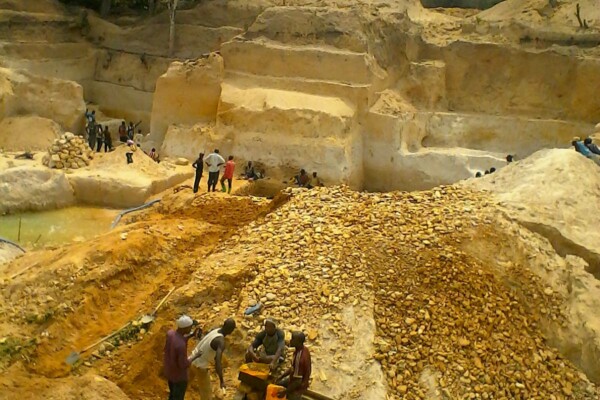
Annual Report 2015
August 31, 2016Download pdf or open with issuu reader http://issuu.com/ipisresearch/docs/2016_10_10_ipis_jaarverslag_2015_20
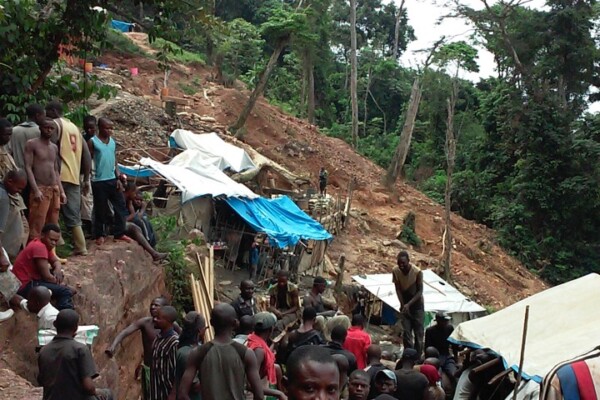
Third Party Review of the Bisie Security Report
July 19, 2016The so-called ‘Bisie Mineral Stock’ encompasses about 1,000 tons of cassiterite, extracted by artisanal miners at Bisie mines between November 2010 and June 2015. A number of bans on mining and mineral trade in this region, as well as some hesitance further down the supply chain to buy untagged minerals, meant that mineral production was not marketed, but stored in warehouses. From 2014 onwards, n
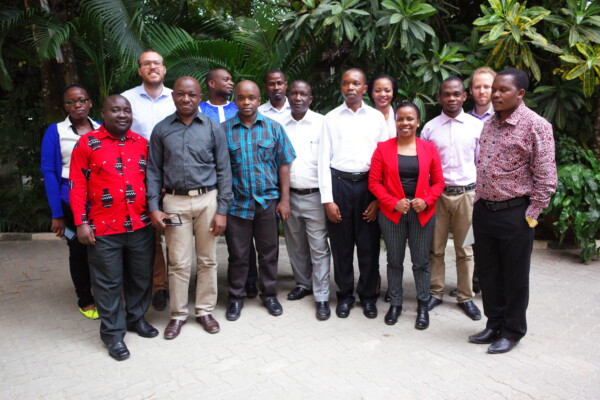
Workshop on Corporate Accountability in Tanzania
May 27, 2016From 23 to 27 May 2016, two IPIS researchers were in Dar es Salaam, Tanzania to organise and facilitate a workshop on engaging corporate accountability for human right impacts of extractive companies. Participants consisted of very engaged civil society representatives from all over the country that work specifically on these issues, namely HakiMadini, CESOPE, FAWOPA, Tanzanian Human Right Defende
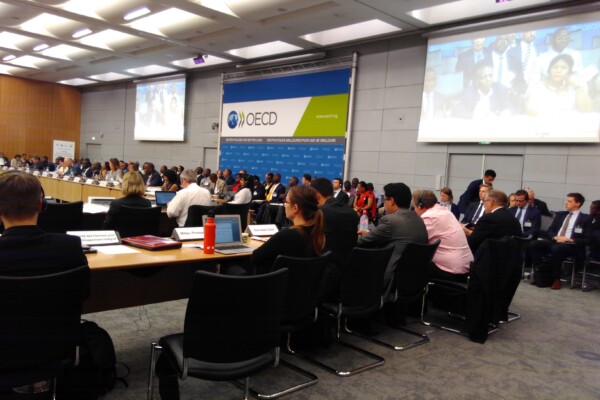
OECD Forum on Responsible Minerals
May 18, 2016Last week, three of our researchers were in Paris to represent IPIS at the 10th ICGLR-OECD-UN GoE Forum on Responsible Mineral Supply Chains. IPIS presented its three year project of mapping artisanal mining sites in Eastern DRC, a joint OECD-IPIS report on Congo mineral supply chains as well as our latest report on the Tourmaline exploitation sector in South-Kivu. IPIS researchers also participat

